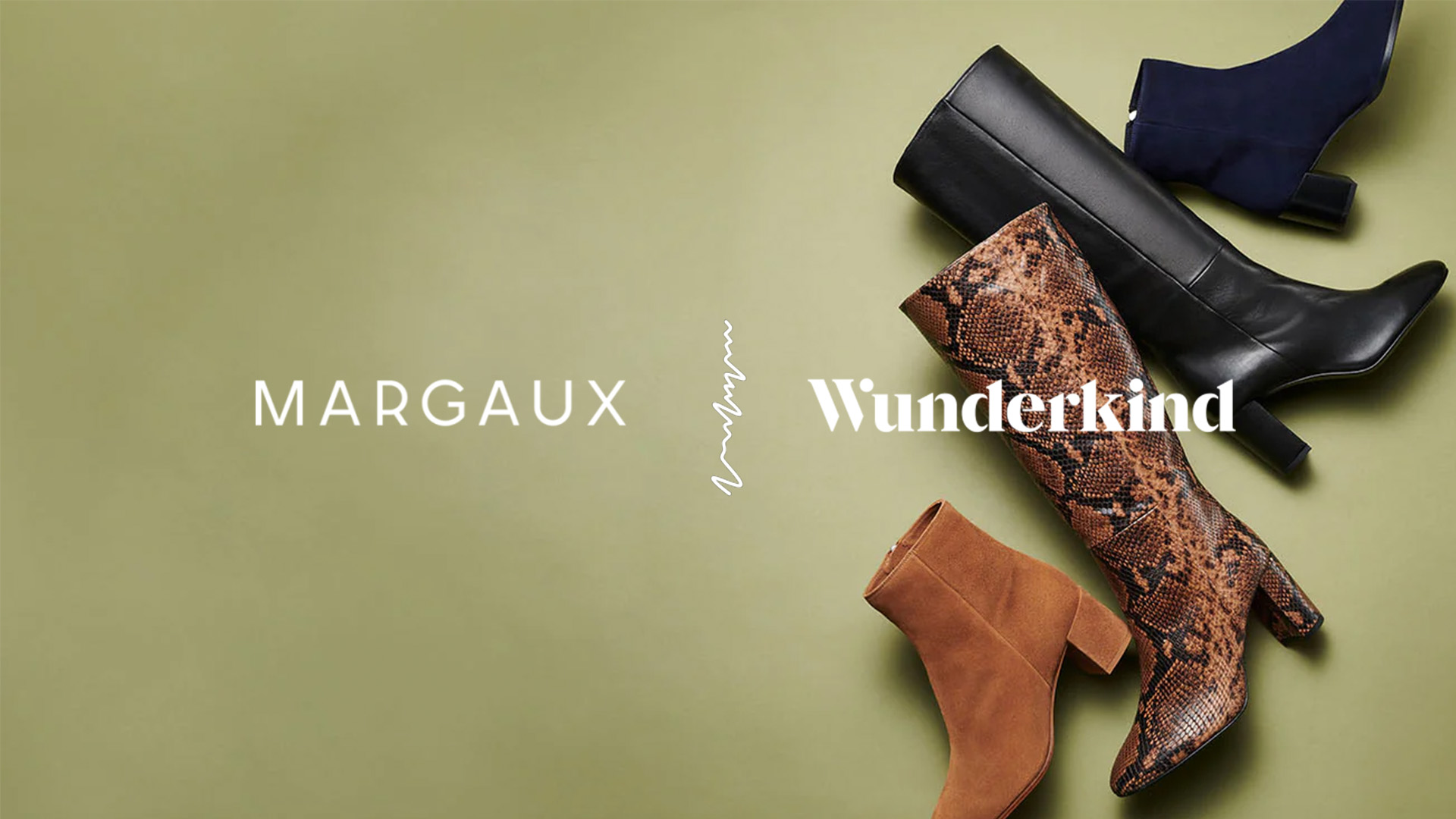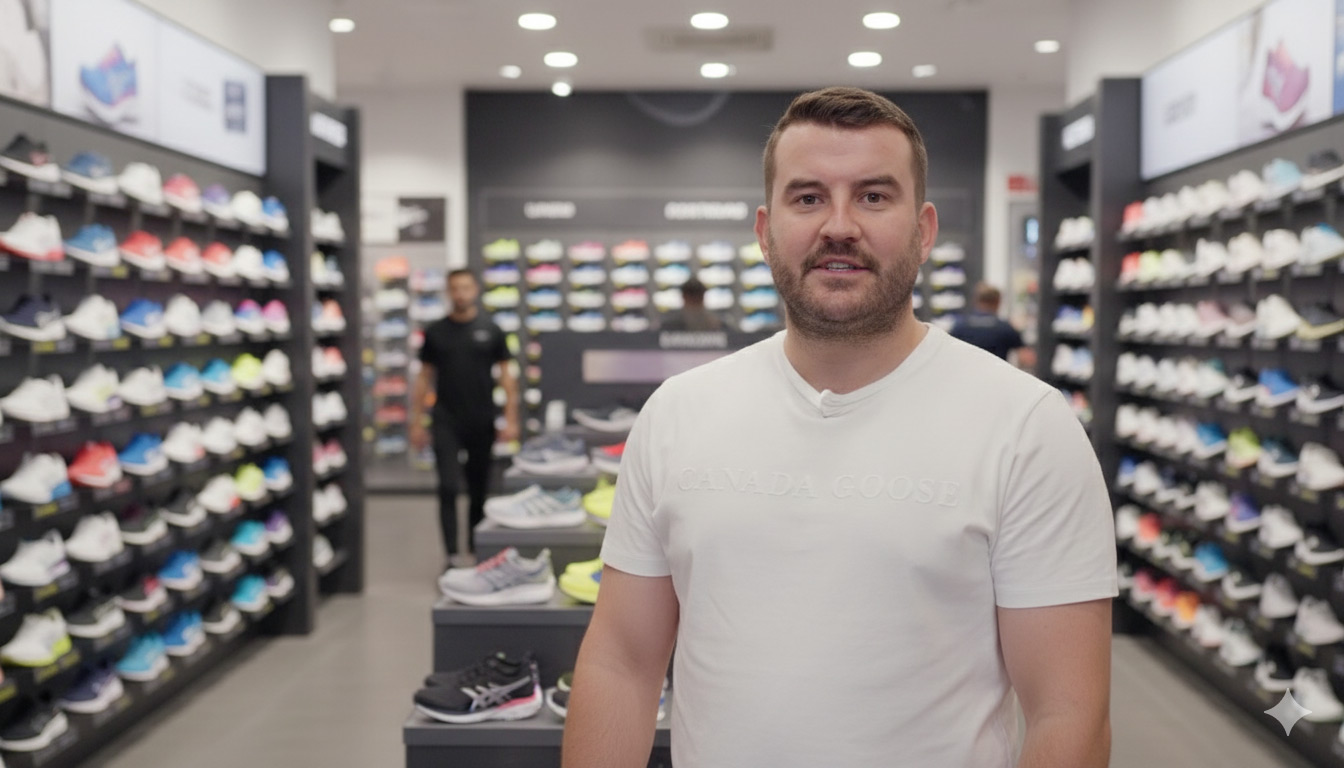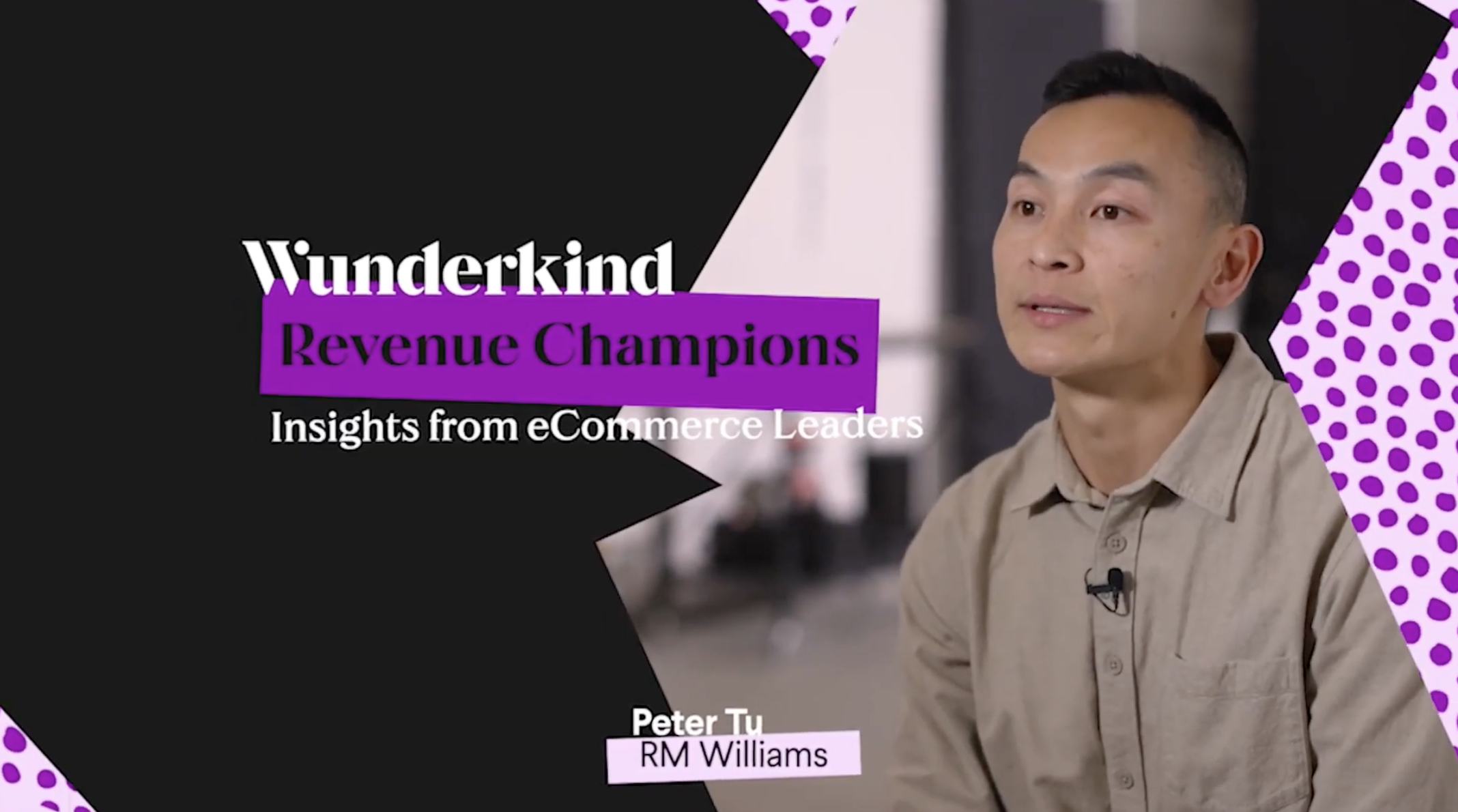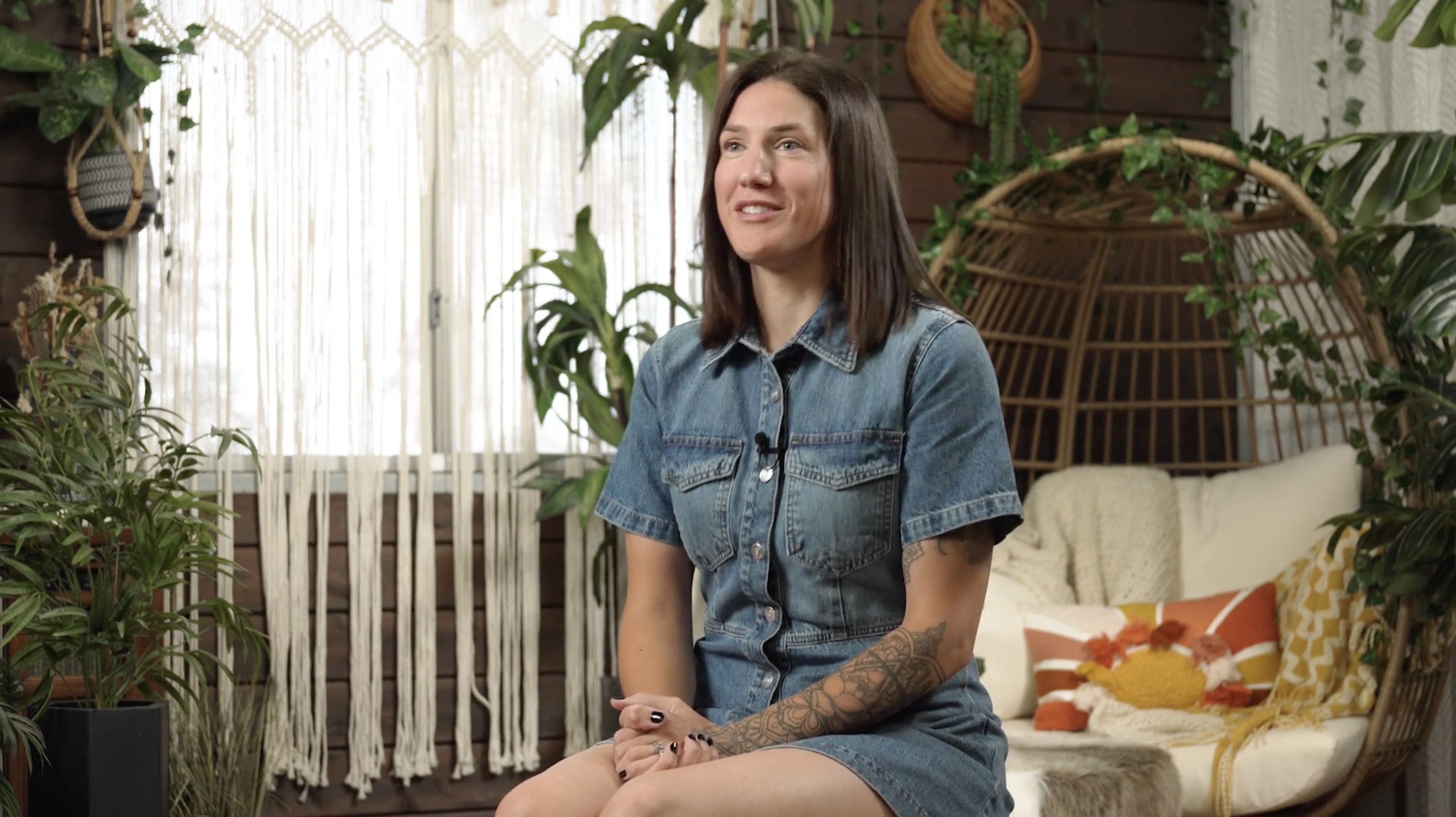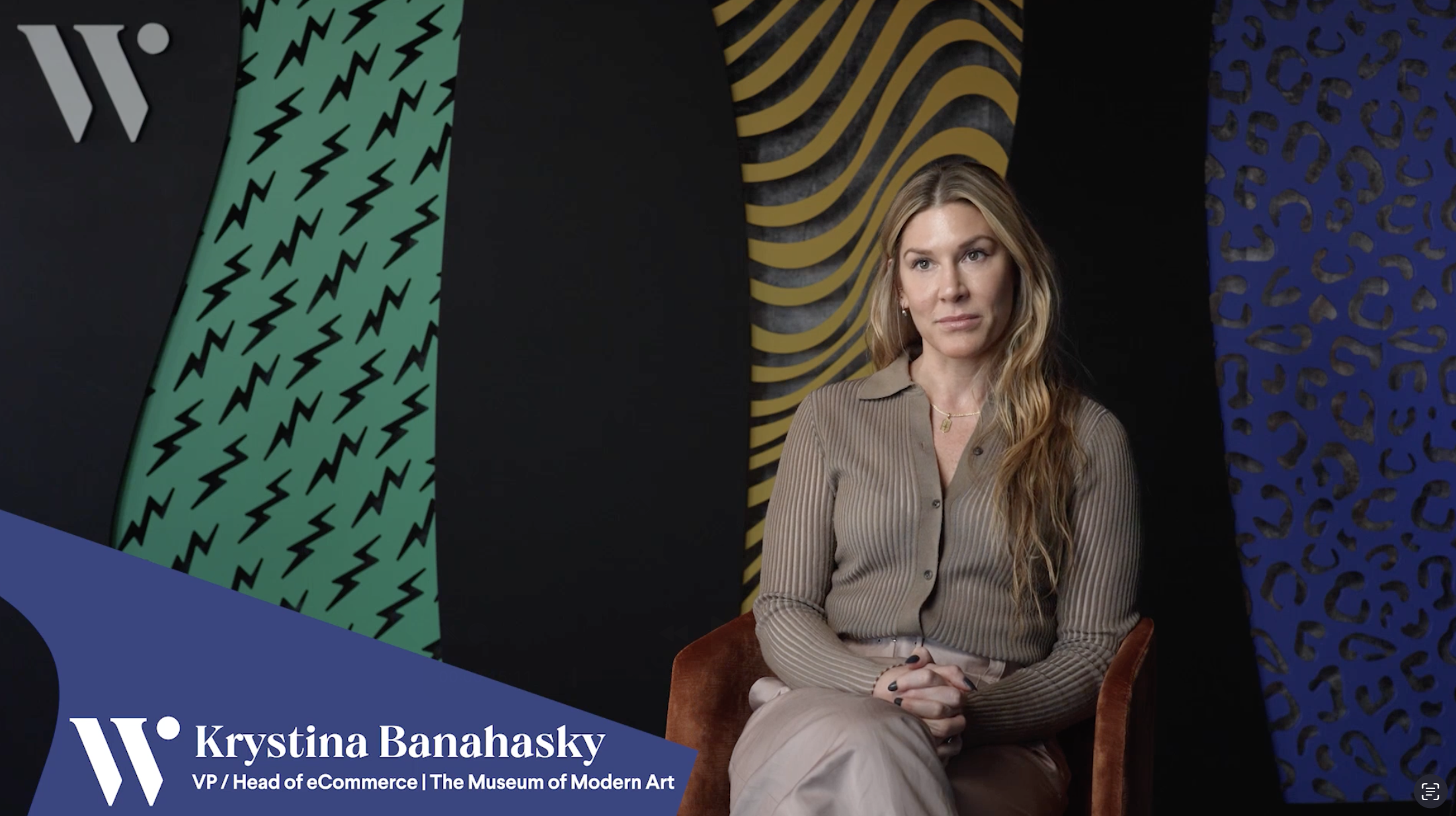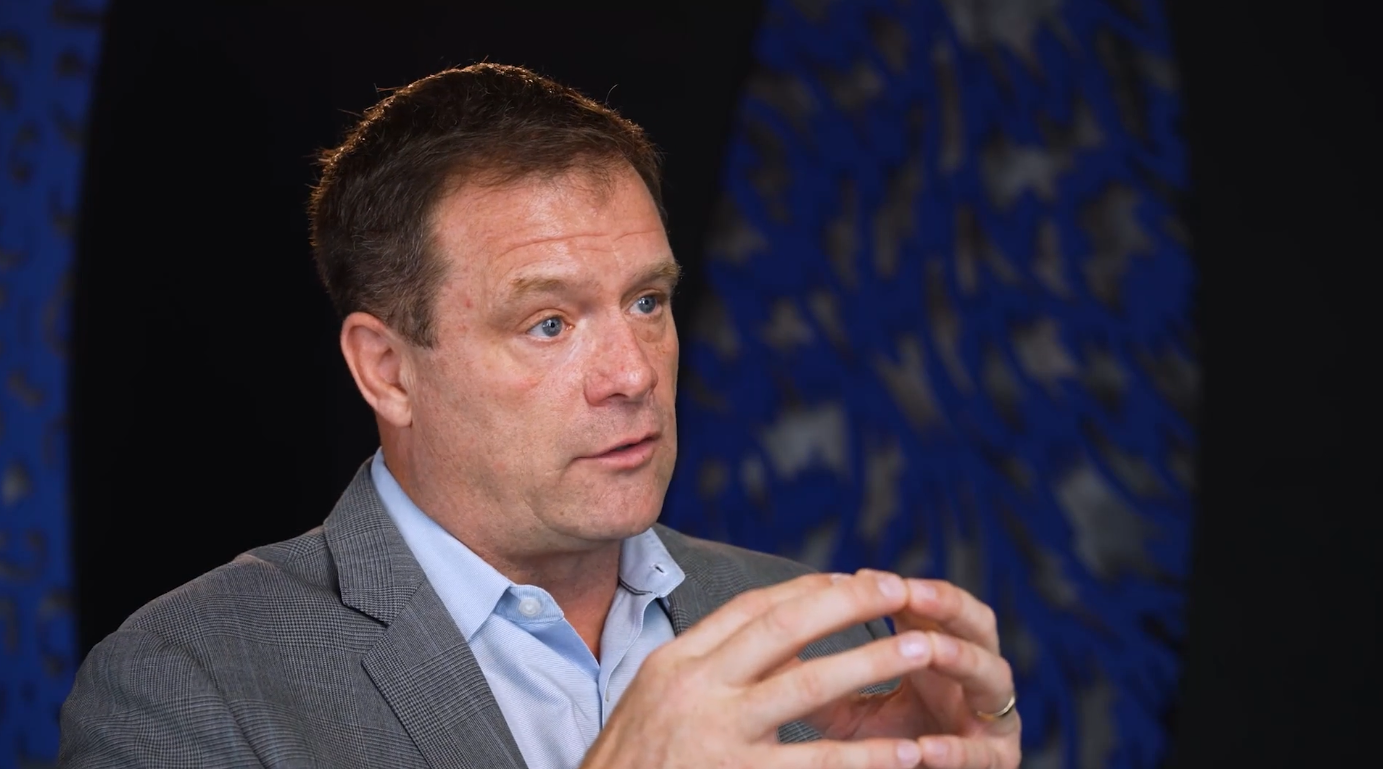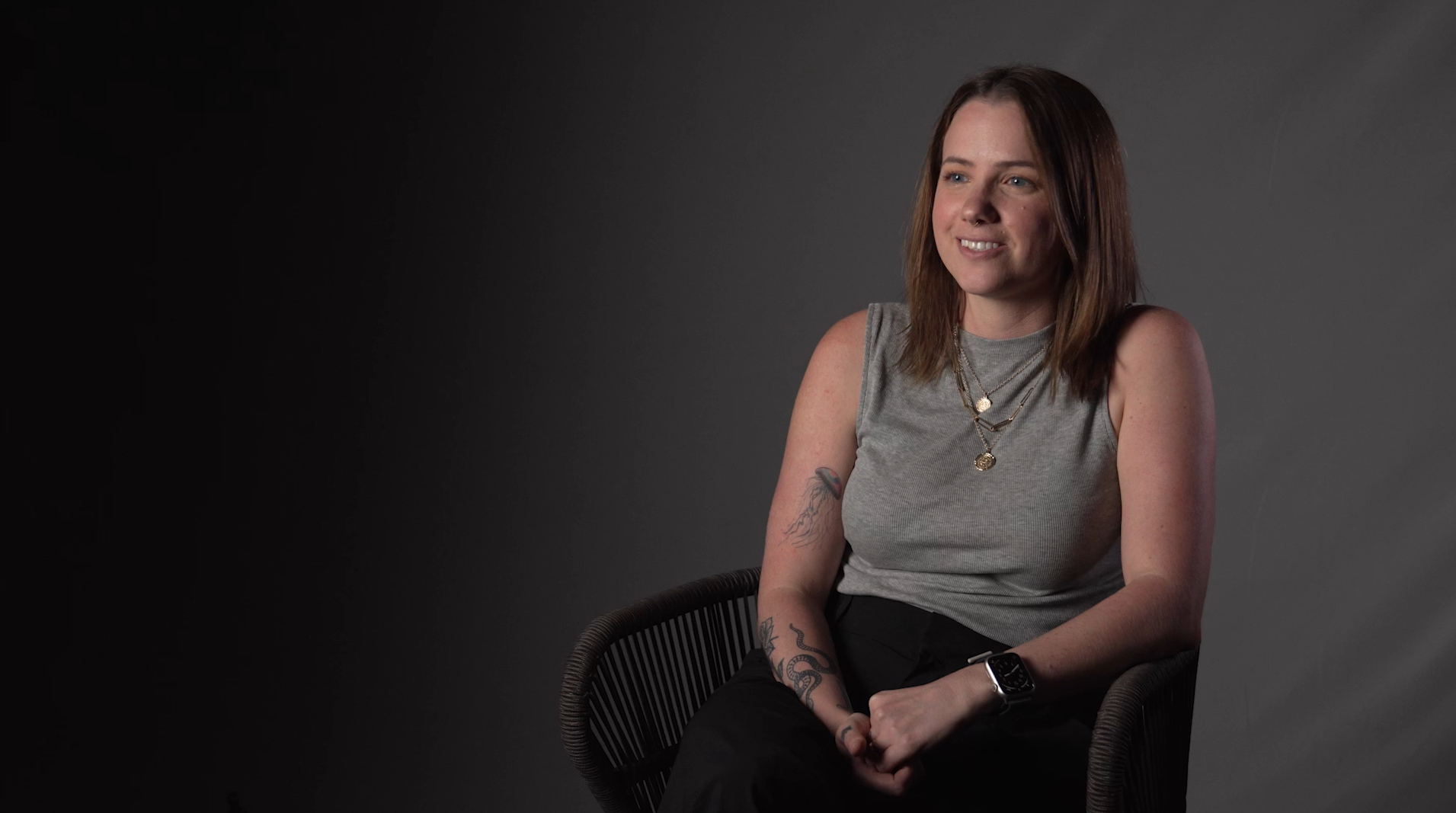Wunderkind Success Story: Margaux
- 0.5
- 1
- 1.25
- 1.5
- 1.75
- 2
Sarah Pierson, Co-Founder, Margaux: I am Sarah Pierson, I'm one of the co- founders of Margaux. We are a women's direct- to- consumer footwear brand, really focused on building wardrobe staples from the ground up for style and comfort, so we engineer all of our shoes to look as good as they feel. And the whole idea behind the collection too is to create your perfect flat, your perfect loafer, your perfect boot, really styles that stand the test of time that you can wear day after day, year after year, season after season. Our customer is really interesting because we have many different types of customers, and probably the best way to describe it is we have a multi- generational customer. So we often see mothers and daughters, mothers, daughters, grandmothers shopping our site, but also shopping our stores. Our core customer, I would say though, is the 25 to 40- year- old, urban, millennial, professional, living in a city, really investing in our shoes for comfort and style, and being able to wear them all day long. But then we also have her mother, and her mother looks a little bit different and discovers brands differently, shops differently as well, is maybe more of a suburban customer than the younger customer too. But what we really love about the brand, and its appeal, and the timeless design is that it can speak to so many different people in many different ways. Yeah, I think it really starts with having a really clear sense of self and point of view for the brand. And my co- founder, Alexa, and I are very, very involved in both the look and the feel, and the words that we use. So to this day, we still write every word of the copy that you see in our email and on our site. And while that's maybe not the most sustainable thing, it actually really ensures that there's continuity in terms of the voice, and that when people hear from Margaux the brand, they're really hearing from us, and that it's coming from a really authentic place. And so that's something that has been really important to us, but as we scale, of course that will change. But I think having such a strong foundation, and what we believe in as a brand, and also really being our own customers ourselves. Our team is all- female, based in New York, and we wear our product, we live in our products, so we know it very intimately. And that actually sets us apart from a lot of footwear brands because traditionally, many footwear brands have been founded by men, designed by men. And we're really unique in that we're designed by women, founded by women, run by women. And so we can identify with pain points that our customer feels, opportunities that exist for our customer, and styles that they want to see from us next. The last few years have been interesting and challenging at certain times because of the pandemic, but also a period of incredible growth for the brand as well. So being a company that specializes in dress footwear, we definitely had a moment when the pandemic first hit where there was a real change, and we had retail stores. We were really focused on dress and workwear styles, and we had to immediately and quickly pivot, and really focus on our online business, but also focus on listening to our customer in terms of what she wanted from us, and iterating on product as quickly as we could. And we look back at that period, and I would never want to do that again, but also at the same time, I know that we came out better for it, because it really allowed us the time and the focus to lock in on our customer. Lock in on what we wanted to do with the brand and the product, and then just fine tune all of the dials. And that's actually when we started working with Wunderkind, was in the middle of 2020. And the short version of the story is that when the world came back, when demand came back for our product in our category, we were in a much better place than we were going into it, and so we were really able to take advantage of that resurgence in demand. It definitely felt risky because I would say we are very frugal, but I felt really confident in the team, and I would say that almost immediately, we knew that it was going to pay off. Even just seeing how our site conversion rates changed almost overnight, it was really pretty remarkable, and since then we haven't looked back. We are starting to think about marketing more and more holistically. So previously, and I think traditionally, a lot of direct- to- consumer brands have thought about your paid and performance marketing, and then you have more of your brand marketing. But the reality is that the two are so interconnected, and so what we're trying to do right now is really take a full picture, look at how and where we're investing, because we know that one will have an impact on the other, and you can't build your brand while only focusing on paid. And similarly, you can't only focus on paid without building your brand alongside. So right now, when we think about where we're trying to invest more, it's on the retention side of things. So how do we develop a customer once they're in the flow with us, whether they've purchased or whether they haven't. Also, to thinking about how we really support organic engagement with the brand. So whether that's stories that we tell on our blog that bring people back in different ways, or it's introducing new styles that help build out that product offering for the customer. I really see Wunderkind as being the... I don't know, the vehicle that helps customers convert. So our paid acquisition efforts are really what's driving traffic and new eyes to the site, and then it's like you take the ball and you pass it to Wunderkind, and Wunderkind takes it from there, in terms of the welcome flows, the behaviorally triggered emails that happen after the fact, and we're actually just about to start working with Wunderkind on text messaging too. So thinking about text, not so much as an extension of what we're doing on email, but actually thinking about text more as a value add. How do we address friction points in the purchase process? Whether you have questions about sizing, or maybe you're not sure what style is going to be best for you. So how can we address some of those pain points through text in a way that feels personal and not invasive in your text inbox. Well, we started with email and we've been really pleased with the results of email, and I think for a while, weren't sure if we were ready for text, and also didn't really have a clear vision for what we wanted to do with text. But with some of the new technology you've developed, and what's coming down the pipeline too, we really feel excited about the ability to have text be a vehicle for conversation. And that's really the goal for us in SMS, is how do we start conversations, and deliver the kind of service and the kind of information that customers need to get comfortable with making that purchase. Totally. We've always said that shopping with Margaux is not so much about the product, but it's more about the feeling, and it's best illustrated when you walk into one of our stores, and we really take pride in delivering a very personal experience, one- to- one service, how does this purchase become a conversation? How do we help you find the perfect shoe, the perfect fit? And we can really create an amazing emotional experience and an emotional engagement with the brand in the stores. But the challenge and the mission of the last two years is how do we create that online, where we don't have that environment to help bring it to life? So how do we, in small ways, make people feel like they're being taken care of when they shop with us? And that's really important, and that guides a lot of the decisions that we make about the site, and also the marketing efforts that we do. Definitely. And that's part of, I think, a broader trend that we're making right now, is how do we maybe reallocate resources away from pure play performance marketing to things that either increase LTV or increased conversion? Because when we looked at... Going back to this idea of looking at your marketing budget holistically, we realized that we were under- investing in the conversion funnel, and we were under- investing in re- engagement, but we were over- investing in perhaps acquisitions. So we were driving tons of new people to the site, tons of new acquisitions, but then the ball was being dropped sometimes when we thought about how are these people moving through the conversion funnel. And then once they convert, how do we make sure they become repeat customers, valuable customers over time. I really enjoyed the team. I feel like they are remarkable, in terms of the personal attention that we get as an account and a brand with Wunderkind. I also appreciate, too, that they always come to the table with ideas for things that we could be testing, doing differently. And, too, when we come to the table with ideas, they're always game for giving them a go, whether it's a test campaign or a change to the email format. But I think there's a real sense of partnership, and I feel like this is a team that hopefully we'll be working with for a long time. I think Wunderkind is, in so many ways, the quarterback for everything that we do on e- comm. Understanding what site performance, conversion rates, customer engagement and re- engagement look like before Wunderkind and having seen what it looks like after. I know that it's a really essential tool in everything that we're doing from an e- comm front, both on the acquisition side and on the retention side. And being a direct- to- consumer brand that's digitally native, e- comm will always be our bread and butter, and it feels like one of those essential pieces of what we do in e- comm and online to help grow our business. To answer that question in two parts, on the macro level of the looming recession, customer sentiment, consumer behavior, we have become very aware of any further increases in prices that we're passing along to our customer, and really focusing too on making sure that we're communicating a price value quality equation to our customer so that they understand that the prices are what they are because of the quality of the product. And that if you do maybe buy less and invest in quality, it will really last you and it will stand the test of time. And so it's a subtle shift in our messaging. We're, at this point, hopefully staying away from any promotional strategies, though we understand that that's a lever you can always pull if it comes to that point, especially with macro trends that are happening. From the standpoint of third- party cookies and how that's changed the equation, I'm probably a contrarian in saying this, but I actually am happy that we're struggling to attribute in some ways because I think that it's really forced us to focus on what is truly organic, and what is truly paid, and figuring out how you triangulate that. And so right now, as many people are, our main challenge is figuring out that attribution piece. And for us, it's become a combination or a triangulation of platform data combined with overall data, how many customers overall have we acquired this month, this quarter, this year? How much overall have we spent on marketing? So really thinking about both really being diligent on the platform level, but then also making sure that we're staying on track from a full picture perspective with acquisition and cost of acquisition. That's a great question. I feel like we are constantly going back to the drawing board, especially when it comes to, on the paid side of things, content and targeting. And our strategy has always been, for the last two years especially, test, test, test. Throw everything at the wall and see what sticks. And you might have something that works for two weeks, you might have something that works for two months, and then you're going to have to find the next wave and ride it. And so I think that that philosophy of, " How do you catch a wave, ride it as long as you can, but then make sure you're looking out for the next one?" That's been our MO, as everything's been changing so quickly. I think Wunderkind more strengthened the foundation of our e- comm funnel. It really provided pieces that were missing previously. So flows that brought customers back from abandoned carts or abandoned shopping trips, more aggressive and successful email capture than we had before. I think it allowed us to find that right balance of being proactive in terms of doing the most that we can with the site traffic that we have. I wouldn't necessarily say that our findings have changed the way that we're thinking about the conversion funnel, but more it's making sure that our conversion funnel is as efficient and successful as possible. I think it comes from, in some ways, a place of authenticity. So how are you able to be empathetic with your customer and put yourself in your customer's shoes? And I think in a lot of ways, we've been really successful in eliminating a lot of that friction, whether it's providing really exceptional customer service and an exceptional experience when you do speak to someone on our team, to making the e- comm purchasing return exchange process as seamless as possible, and that's certainly been a work in progress over the course of the last few years. I think the last challenge for us is... We spoke a little bit earlier about retail and how retail factors into what we do in a store. You have the ability to have someone try on a shoe and find their perfect size, you don't have that advantage when you're online. And for us now, the main lingering friction point is how do we give the best sizing information we can in the moment to help someone feel comfortable with the purchase they're making. It has. When Wunderkind has really enabled us to grow our email list quite significantly, and in some ways, I think the best marketing and the best communicating that we do is through our emails, especially on the brand campaign front. So the stories that we're able to tell, the messages that we're able to tell, the words that we're able to use, and building that story and that persona around the brand for the customer. And I think that Wunderkind is invaluable in that way, because it's allowed those people who maybe first visit the site just for pure discovery, not intending to shop, can then engage with the brand in a lower lift way. And eventually, then we can develop them into a customer.
DESCRIPTION
Meet Sarah Pierson, Co-Founder of Margaux, a women's direct-to-consumer footwear brand. In this insightful interview, Sarah shares the brand's focus on building timeless wardrobe staples for style and comfort. Discover how Margaux engineers shoes to look as good as they feel, creating the perfect flat, loafer, and boot for every woman. The brand's collection is designed to stand the test of time, offering styles that can be worn day after day, season after season. Learn about Margaux's diverse customer base, ranging from urban millennials to multi-generational shoppers, including mothers and daughters. Sarah emphasizes the brand's commitment to authenticity and how being founded and run by women allows Margaux to identify with its customers intimately. Explore the role of Wunderkind as a secret weapon in Margaux's e-commerce growth, streamlining the conversion funnel and providing essential tools for success. Sarah delves into the partnership with Wunderkind, highlighting the team's personal attention, creative ideas, and commitment to collaboration.
Today's Guests


